The Rates: Clipping shout out their favourite underground techno and Bay Area hyphy
We ask an artist or group to share the three musicians they think have gone under-appreciated, and three new names who they hope will avoid a similar fate
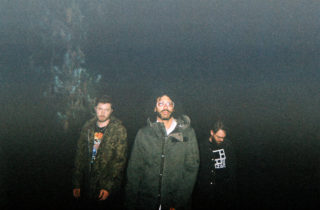
We ask an artist or group to share the three musicians they think have gone under-appreciated, and three new names who they hope will avoid a similar fate
When dealing with as challenging a group as Clipping, it feels appropriate to hold back any big assumptions about where their influences come from. The industrial hip-hop trio have clearly invested enormous time and intellectual energy in their work; to come in as an outsider and ascribe a specific masterplan to what they do seems a little forward, to say the least.
And yet, in the case of the group’s second album for Sub Pop, 2016’s Splendor & Misery, the hesitation of some to describe it as an afrofuturist sci-fi song cycle became a frustration. “We have learned to not be coy in press releases anymore,” explains producer Jonathan Snipes. “We used to be like, ‘We want this to be a discovery for the audience’, but now we’ve learned to just say, ‘THIS. IS. A. SCIENCE. FICTION. CONCEPT. ALBUM.’ We have to fucking spell it out.”
So with that in mind, their most recent album, Visions of Bodies Being Burned, is a horrorcore album, just like last year’s There Existed an Addiction to Blood was. It finds Daveed Diggs, he of the original Hamilton cast and star of Black-ish, Snowpiercer and Blindspotting, drawing upon a dizzying list of horror film and music references in his lyrics while Snipes’ and William Hutson’s beats create an aura of menace, whether creepingly unsettling or outright violent.
For this month’s Rates, I asked each of the three members of the group to select two artists, one established and one emerging, that they feel have been most unfairly under-celebrated. What followed was an outpouring of love for music of very different stripes.
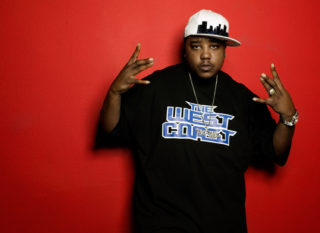
Daveed Diggs: He came into local success doing hooks for E-40 songs, but he has an incredible voice. He’s a really good rapper and nobody ever really talked about that. I think a lot of folks who had their heyday in the hyphy era, the rapping was not what it was about, so no-one happened to appreciate people who were very good at rapping, or it didn’t make a significant difference to whether they were successful or famous or appreciated. And granted this is within a very local scene anyway – I don’t know anybody outside of where we grew up who is a Turf Talk fan.
The Street Novelist, still I can listen to every song on that album. A few years later he put out an album called West Coast Vaccine that I don’t think you can even get on streaming platforms anymore, and it is so good. I’ve bought it, like, four times on CD. He was really street but he fit in with that hyphy-era ethos of just having fun, and bar-for-bar that dude could rap! He doesn’t put out much music anymore and I wish he did.
Max Pilley: Help describe for someone who grew up 5000 miles away what the hyphy thing was. Did it always remain hyper local to the Bay Area?
DD: The greatest national acclaim it reached was with ‘Tell Me When to Go’ [from E-40’s 2006 album My Ghetto Report Card], that’s probably the hyphy song that most people know, and that was the end of it really. 2000-2007 in the Bay Area was this time that was just different. I’m a little bit of a hyphy scholar, I probably think about it too much or reference it too much, and they were my formative years so it’s more important to me than anybody else.
The idea to me was always that kids in the Bay Area were always told they were too wild, they’re too bad and they’re dumb, and this idea of going dumb that we latched onto in the hyphy era was this thing that is common in disenfranchised communities, where it’s like, if you’re going to call me something, I’m going to flip that and make it beautiful. And so, we turned this idea of going dumb into something that referenced everything about how we behaved and how we acted. The music of that era was indicative of that, it was really silly. It was really fast-paced and it was fun. You would have these moments when you would be driving down the street and the right song would come on the radio and all of the cars would stop and everybody would jump out of their cars and start dancing, just in the middle of the street. It happened frequently. People don’t understand this when I explain it to them, it feels like a fever dream or something. There was a unifying philosophy in the Bay Area, there was a culture that was all of ours, and not really anybody else’s, and we were very proud of it.
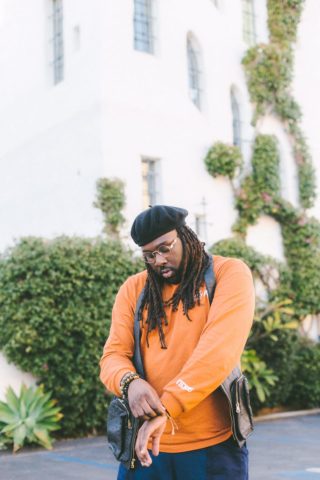
DD: He’s another Bay Area cat. I think he’s great, he’s got an album coming out called California Poppy 2. Again, I like rappers, and he’s a really good rapper, but he’s also a great singer. His verses are sung like an R&B song but they’re written like rap songs. He’s got this great melodic sense that is super current and he’s one of these people that has the capacity to straddle this line. Every rapper sort of sings to a degree, but his singing is more interesting and his rapping is more interesting. I think he’s a great writer and he’s a really nice dude, he’s one of those people that you want to win. That ‘Tesla in a Pandemic’ song that just came out is really good. He’s got it all.
MP: Is there any unifying strand through yourself and these two other Bay Area artists that you can identify at all?
DD: Yeah, definitely. Emphasis on the wordplay, emphasis on the slang, emphasis on the fun of it, too. Both of them, and us to a degree, are nerds about rapping. Those Rexx songs aren’t accidents, they don’t feel like they just happened, there’s so much construction there. For me, that’s one of the Bay Area through-lines – we’re a little obsessed with construction, I think.
William Hutson: There’s also a very specific thing in the Bay; there’s such an emphasis on ‘What’s your unique thing, what’s your unique voice, how do you rap differently to everyone else?’. Maybe I just don’t have the ear for it for other cities, but it feels like in the Bay Area everyone sounds all over the place. Everyone’s looking for their own very unique take, and they do not want to sound like anyone else at all.
DD: Yeah that’s true, and it feels actually more true as time goes on. You can hear other scenes starting to sound more and more the same.
WH: It’s people with weird-sounding voices, that’s such a thing in California. Literally, the sound of their instrument is different.
WH: Mia X went platinum [with her 1998 album Mama Drama], but I don’t know that people appreciated her at the time or if they appreciate her or No Limit [the label founded by Master P that released her music] anymore. Daveed was talking about our era being hyphy, but we were at high school at the boom of Cash Money, No Limit and that underground gangsta rap scene from Louisiana that completely took over. It’s hard to appreciate now thinking back that bus benches in Oakland would change every week, and it was whatever new No Limit album was coming out. And we were thousands of miles away from that, all the way across the continent. It was everywhere.
Mia X was this really interesting figure on the label as the only woman and definitely one of the stronger bar-for-bar rappers in the group. They had a bunch of excellent rappers – Mac, Fiend, Magic, Mystikal – but it was a time when there weren’t a ton of massively famous women rappers and I thought of her for this because of the explosion in the last couple of years of female rappers that are outselling every other rapper on the scene. A Cardi B album, a Megan Thee Stallion album, those are events in a way that other rappers’ records aren’t. And it just feels to me like Mia X was way ahead of her time, in that a lot of the stuff that she raps about is exactly like what someone like Megan is rapping about. Mia X’s first breakthrough record was a bounce record called ‘Da Payback’ in 1993 and it’s clowning on gangsta dudes about how they’re trying to spit game but she’s got more money than them and if they want to fuck, they’ve got to pay her, making fun of their dicks and all that stuff, and it’s exactly the same shit but it’s 25 years before and it’s fucking hard as hell. I just think she’s fantastic.
MP: There will be some people that are fans of yours that will be surprised that you’re so enthusiastic about gangsta rap, because for whatever reason people tend to think that artists only listen to things that sound exactly like them.
WH: Yeah, people think if you make a slightly weird version of a type of music, it’s the equivalent of saying that it’s bad music. As if we make noisy rap because we fucking hate rap and we’re destroying it and taking it down! That’s obviously not what we do. If you listen carefully to what we do, I think it’s very reverent. We are so specific in our homages and so open when it’s an homage.
DD: It feels like the longer we keep doing it, the more people settle into it. Some of the journalism around this last record seemed to finally start to acknowledge that we must love this stuff, I think partially because I packed in so many quotes.
WH: And these last two records, we explicitly said it was horrorcore and we listed Geto Boys, Bone Thugs-n-Harmony, Brotha Lynch Hung, these are our influences. This is our tribute to a completely underappreciated, forgotten, weird stepchild of gangsta rap that we have particular affection for.
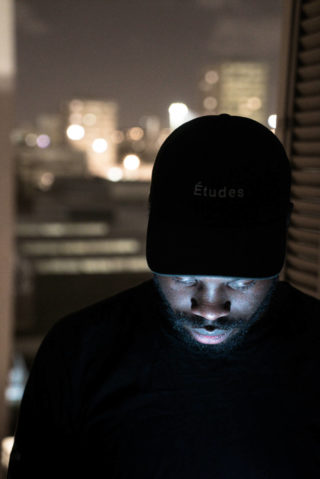
WH: If he was literally the most famous, best-selling computer musique concrète performer in the world, he would still be globally massively underrated. It would be, ‘Oh, I outsold Peter Rehberg!’ I guess Tim Hecker would be maybe the biggest name he’d be coming for. No matter where he goes, I think he’ll definitely deserve more. I just listened to this record [Simulacrum, French composer Aho Ssan’s debut album, released in early 2020] a lot this year. There’s something about this type of music, it just works on me. There is a trajectory of French IRCAM and GRM musique concrète that just works on my brain and I listen to it all of the time. It just scratches a particular itch; it’s a certain timbre and logic that I can listen to forever and I’m always interested in it.
This first album by Aho Ssan is a particularly excellent and considered example of this. When Endless Summer by Fennesz came out [in 2001], it felt like the one album where someone had taken these sounds and made a record. That’s why it was a pop breakthrough album for that genre, and Simulacrum feels like the same thing to me. It’s got themes, things recur and come back, and it’s obviously very conceptually rigorous. This is a remarkable record and the next one is going to be better and the next one is going to be better. I hope he gets as much success as anyone in that world can possibly get – I hope he gets a really posh teaching gig in some department somewhere and gets to make all the music he wants and gets to live comfortably for the rest of his life off being an excellent computer musician!
MP: And for all the people who are confused with all your love for gangsta rap, they might be able to relax because this is probably what they imagined you were listening to instead.
Jonathan Snipes: It’s weird that we haven’t talked about that record, Bill, because it’s also one of my favourite records of the year. I’ve been listening to it all year non-stop too and I don’t think you and I have ever even talked about it.
JS: Like a Tim is one of the few artists that I have successfully and obsessively collected every record of. I think the first time I heard him was when I first discovered Rephlex Records, the label that Aphex Twin had. This was in the ’90s when it was really hard for me to find out stuff, growing up in Riverside, Southern California, which might as well have been the Midwest as far as music stores were concerned. I found a Like a Tim remix record and I saw the Rephlex logo in a clearance bin and I bought it. It was one of the first records that I can remember putting on and saying, “What the fuck is this shit, this is not music, this is so fraudulent, what is happening and how can things sound like this.” I became utterly obsessed with it and I listened to it over and over again to try to understand it. I kept buying his records as I would find them, because I just didn’t get them, and then it became some of my absolute favourite music.
Some of the early stuff on Djax Up Beats are just pretty straightforward acid tracks and then he gets into this period in the late ’90s where nothing is quantised, nothing’s in tune, it’s just these weird, loping, arrhythmic, a-melodic patterns with the most out of time drum fills and it’s so deeply strange. It sounds to me like caveman children banging on rocks, but with really expensive-sounding synthesisers, and it’s so funky and childlike and full of wonder. The idea you can take any strange synthesiser pattern and just do it over and over again and it becomes a funky dance loop that we have adopted in Clipping, I think that comes a lot from my love of Like a Tim. And I don’t know if any of them listen to this stuff, but the whole PC Music thing, I hear Like a Tim so much in A. G. Cook and SOPHIE and definitely in GFOTY’s productions.
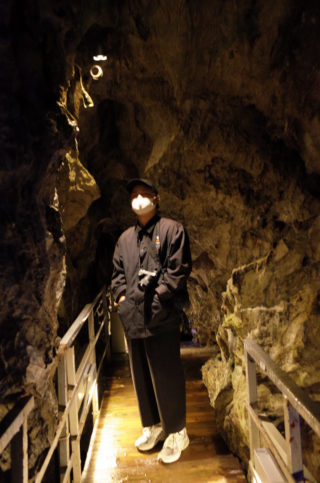
JS: I don’t know how old he is, but it sounds quite young to me. It feels like somebody young and smart who has grown up listening to Autechre and Mark Fell and things like that and has just decided, “Oh, I’m just going to do the next thing”, it feels like the next sound. There are only these two records on Bandcamp and I feel like they were released on the same day and the track titles are just the dates that I assume the tracks were made. As far as I can tell, he’s only using a couple of Electron boxes to make this stuff and it’s so virtuosic and effortless sounding, and yet it’s so challenging and difficult and dense. There’s an effortlessness to it that I find really impressive and I’m so excited to see what he’s going to do next. In the way that some comedians are comedian’s comedians, this feels like a producer’s producer. He’s super clinical but also really playful.
MP: Is it inevitable, because of what you do, to listen to electronically produced music with quite an analytical mind?
JS: Yeah, that’s always been how it’s worked. I think of something that Daveed said a long time ago, I forget what we were listening to, some rap song in the car, and he said, “This is like candy for me, I could just listen to this and consume this constantly, it just makes me feel good.” This Akeyamasou record, that’s my candy.
Photo by: Cristina Bercovitz